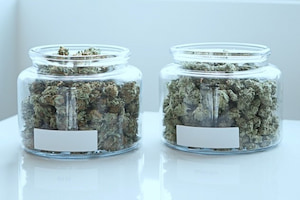
In a move that could have ramifications for the entire cannabis industry, New York passed a recreational marijuana bill that would make adult-use cannabis legal in the state. The legislation was approved by lawmakers in the New York State Senate just before the April 1 deadline for passing the state budget. So, what could legalization of recreational marijuana mean for major cannabis operators looking to make inroads in New York’s emerging cannabis market? Keep reading this blog to learn more.
NY Senate Votes to Legalize Adult-Use Cannabis
State senators in the NY Senate approved the recreational marijuana bill in overwhelming fashion, with 40 senators voting in favor of the legislation and just 23 senators voting against it. (The vote still came down mostly along party lines, with Republican lawmakers generally opposing legalization.) The historic vote by the New York State Senate came on the heels of NY Governor Andrew Cuomo voicing his own support for the legislation and signaling that he would sign the legalization measure if it reached his desk. In earlier statements, Cuomo had linked the criminalization of cannabis with the disproportionate incarceration of minorities and people of color, and Cuomo had called for legalization as a way to ensure fair treatment in the state’s criminal justice system when it came to enforcing drug laws.
Not long after the New York Senate voted in favor of legalizing adult-use cannabis, the other chamber of the New York State Legislature – the NY State Assembly – approved the bill by a vote of 100 to 49. The bill then headed to the desk of Governor Cuomo, who quickly moved to sign it into law. And just like that, New York became the 15th state, along with the District of Columbia, to legalize marijuana for recreational use. The move to make marijuana legal in New York comes on the heels of its tri-state neighbor, New Jersey, also legalizing marijuana for recreational use.
In addition to allowing for the legal sale of recreational marijuana at state-licensed dispensaries, the new law also allows individuals to possess up to three (3) ounces of marijuana and up to 24 grams of cannabis concentrate. Beyond that, the law goes further than the marijuana laws in many other states by allowing individuals to grow up to six (6) marijuana plants at their residences.
When Will Recreational Marijuana Be Legal in NY?
The NY cannabis legalization law goes into effect immediately. However, since it will take time to implement rules and set up the New York cannabis economy, it could be more than a year before dispensaries are prepared to start selling cannabis for recreational use.
The rules under which cannabis operators will ultimately be granted adult-use cannabis licenses are also still being worked out by lawmakers and other state officials. At present, it is expected that the 10 medical marijuana operators currently licensed in New York will be allowed to sell recreational cannabis. However, these operators will likely be required to pay larger-than-usual licensing fees to gain entry into the recreational marijuana market. Additionally, the operators looking to “double dip” into both the NY medical cannabis market and the NY adult-use market will be limited to just three (3) adult-use dispensaries each, with those dispensaries being located within or adjoining the operators’ existing medical marijuana dispensaries. The idea behind limiting the total number of dispensaries that any one cannabis company can own and/or operate is that the state wants to make sure that the New York cannabis market is competitive.
Social Equity Concerns Addressed in NY’s Cannabis Legalization Law
While other states have encountered issues with minorities being underrepresented among dispensary owners who are ultimately granted licenses for adult-use legalization, the New York cannabis legalization bill specifically addresses some of those problems. In fact, the bill explicitly supports what are known as “social equity applicants,” as well as microbusinesses that operate outside and apart from larger cannabis operators with a strong presence in multiple states. The NY bill includes provisions that would encourage at least 50% of all licenses for adult-use sales to be granted to social and economic equity applicants. Additionally, New York will create a state-run Cannabis Advisory Board with a directive to “actively promote and potentially license social and economic equity applicants.”
NY Adult-Use Cannabis Market Expected to Generate Billions of Dollars
Cannabis industry experts believe that the creation of a new cannabis market in New York will result in billions of dollars in annual revenues for the state. According to one projection, the New York economy would see approximately $2.3 billion in annual sales of cannabis by the fourth year of legalization, as well as the creation of at least 60,000 new jobs. The taxes imposed on adult-use sales will be set at 13%, with 9% going to the state and the remaining 4% going to local municipalities where the dispensaries are operated. There will also be a “potency tax” on tetrahydrocannabinol (THC), so that marijuana with higher concentrations of THC is taxed at a higher rate.
Contact Scythian Cannabis Real Estate Today
Scythian Cannabis Real Estate is a privately held cannabis real estate fund that assists cannabis operators with financing through sale-leaseback deals on properties used for retail operations. If you are a cannabis operator and would like to learn more, email us today.
PLEASE NOTE THAT THIS BLOG IS NEITHER AN OFFER TO SELL NOR A SOLICITATION OF AN OFFER TO BUY SECURITIES IN SCYTHIAN REAL ESTATE FUND.



